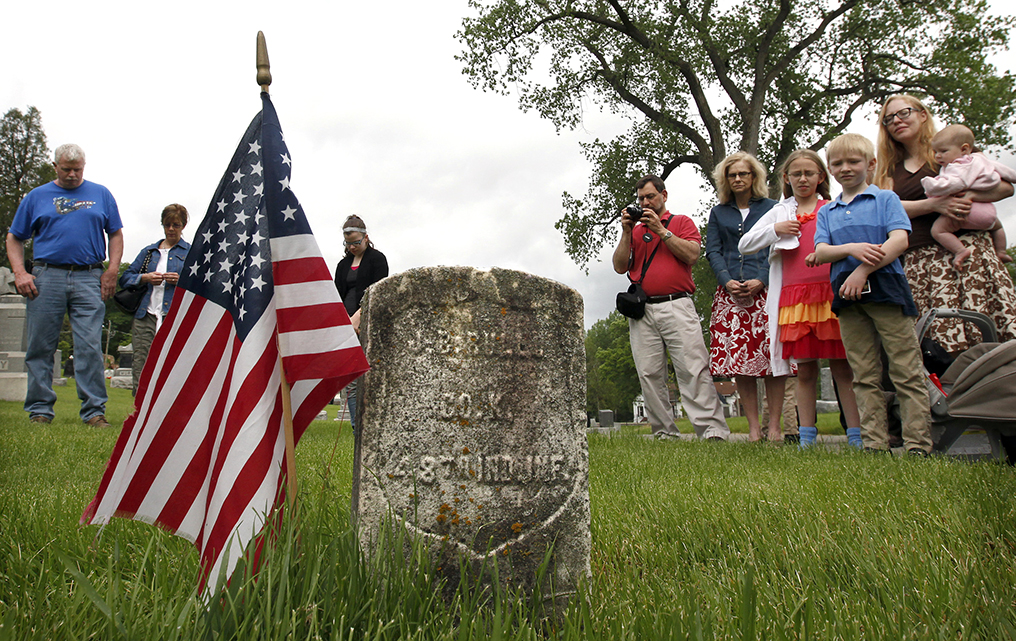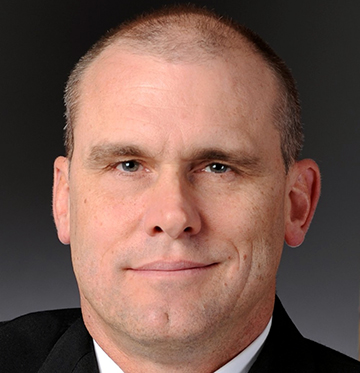
Our Memorial Day was originally known as “Decoration Day,” an opportunity to decorate many graves of the over 600,000 men who died in the Civil War. It was, by far, our nation’s costliest war in terms of human life, about 2 percent of the entire population. Today, that would translate into 6.5 million people. Memorial Day honors all who have died in military service to our country since its inception.

But why should we, as a nation and as Catholics, remember something so … grim?
It was September 2006. The rooftop was sweltering. Three U.S. Navy SEALs were in an “overwatch” position on a Ramadi home with two Iraqi soldiers. It had been an eventful morning, but it was quiet at the moment. From below, without warning, someone lobbed a grenade. It bounced off Petty Officer 2nd Class Michael A. Monsoor’s chest, then clattered on the deck. Penned together, all five were easy prey for the grenade’s deadly spray of shrapnel. At point-blank range, it couldn’t miss.
Monsoor yelled, “Grenade!” and made a snap decision that would mark him for all time. He flung himself onto the device, smothering it with his torso, just in time to absorb the blast. The result was predictable; he lived only 25 minutes before dying of his injuries. His companions escaped with only scratches and minor wounds.
Because of the configuration of the rooftop, only one of the five men had a pathway of escape, had he chosen to use it: Yes, Michael Monsoor. For his stunningly self-sacrificial action, he received the Medal of Honor, our nation’s highest military honor, posthumously. As is written in his official Navy Summary of Action, “Monsoor’s actions that day could not have been more selfless or clearly intentional.”
I tell recently commissioned Catholic Marine officers the story of this heroic Navy SEAL. And I ask them who, further back in history, perfectly embodied a sacrifice that “could not have been more selfless or clearly intentional.” The answer of course: Jesus Christ. What Our Lord did to save us could not have been more selfless or clearly intentional.
“Do this in memory of me” (1 Cor 11:24).
We know from his official biography that Michael Monsoor “devotionally” attended Catholic Mass prior to his missions. Apparently, he was a man who intentionally sought to integrate his faith with his daily life of military service. How many times did he hear the words following the consecration, “Do this in memory of me”?
How deeply was this Scripture etched in his mind and memory as he went about his dangerous duties? What did it mean to him? Jesus uttered these words at the Last Supper, just before His own stunningly self-sacrificial action on the cross. Did Monsoor make this profound connection?
It is inconceivable that those who survived the rooftop blast would forget Monsoor’s sacrifice. Their very lives are a testament to what he did to save them. Likewise, the Church’s entire devotional life is about remembering — calling to mind some aspect of the paschal mystery, meditating upon it, being present to it, making it present to us.
Each time we devoutly pray the Rosary or walk the Stations of the Cross, for example, we are stirring into fresh awareness what Jesus did to save us. Even more so, at Mass, His sacrifice is actually made present to us. Our faith is fed by remembering, calling to mind, what Jesus specifically did.
The freedom and salvation we know as Catholic Christians are clearly traceable to a specific choice made by a man in sacrificing himself (Jn 10:18), just as the SEALs who escaped the otherwise-deadly blast that day on the rooftop are alive today because of a specific choice of a man to sacrifice himself.
Memorial Day is an opportunity, as a nation, to remember and appreciate those who have died so that we might live … freely. The civil blessings of stability, prosperity and freedom we enjoy are a testament to the price they paid. As Catholics, we remember those who have gone before and pray for their souls. I, like many priests on Memorial Day, will offer Mass for the repose of those who have died in service to our great nation. Honoring the fallen is important for us sinners who tend to take our blessings for granted.
But maybe, most important of all, Memorial Day can help inspire us to the greatest thing of which we are capable, by God’s grace: sacrificial love. Love that sacrifices for the beloved is divine and the only true love.
In remembering what Our Lord did, what all His saints have done in memory of Him, and what others such as Michael Monsoor have done, we are reoriented to what life is really all about. We are more likely, in our turn, to love someone at our expense. At its best, Memorial Day is a civil and military echo of a profound theological truth: that God, “who is love” (1 Jn 4:8), sacrificed Himself so that we might live (1 Pt 2:24).
And Our Lord says to each of us: “Do this in memory of Me.”






